-

Duration: May 2023 - February 2025
Budget: US$2,451,354
Implementing Agencies: UNESCWA(lead), League of Arab States
The past decade has witnessed a rise in conflicts across the Arab region. These conflicts have proven more fluid, protracted, and complex, damaging the region’s rich cultural landscape, while undermining human security and opportunities for sustainable development.MORE -

Duration: July 2022 - December 2023
Budget: US$299,865 (UNTFHS: $299,865)
Implementing Agencies: PAHO/WHO (lead), IOM
The programme aims to: (i) improve national, local and inter-country multi-stakeholder coordination on health and migration through the application of the human security approach and the enhancement of capacities of stakeholders on human security in the context of health and migration; (ii) strengthen health information systems by building capacities to generate and integrate health data on migrants and support evidence-based, migrant-inclusive policies and plans; and (iii) employ knowledge obtained from improved data collection systems, as well as established Health and Migration Country Teams (HMCTs) and Health and Migration Working Groups (HMWGs) to promote and mainstream the human security approach in capacity-building activities on health and migration for the region.MORE -

Duration: April 2022 - June 2024
Budget: US$475,000
Implementing Agencies: OHCHR (lead), UNDP
The populations of small island states in the Pacific region are highly vulnerable to external shocks, impacting all aspects of their lives and livelihoods as well as prospects for sustainable development.MORE -

Duration: November 2021 - April 2023
Budget: US$456,092 (UNTFHS: $303,292; Pooled Resources: 152,800)
Implementing Agencies: IOM(lead), United Nations Framework Convention on Climate Change (UNFCCC)
Small Island Developing States (SIDS), including the Eastern Caribbean SIDS, are frequently exposed to climate related threats and are especially prone to natural disasters that are up to six times more damaging when compared to developed countries. These recurrent threats, along with other shocks faced by the SIDS, disproportionately impact their development and their attainment of the SDGs, with COVID-19 further amplifying their inability to attain the SDGs. MORE -

Duration: November 2019 - July 2022
Budget: US$375,000
Implementing Agencies: IOM (lead), UNESCWA, HSU
Countries in the Arab region have been heavily impacted by conflicts. These conflicts have resulted in tragic loss of life, forced displacement, physical destruction, strained and failing institutions that together result in complex and interconnected insecurities, often spilling into neighbouring countries within and beyond the region. Responding to the urgent challenges faced by countries affected by conflict in the region, the Arab Committee for Sustainable Development requested the League of Arab States through its Department of Sustainable Development and International Cooperation to prepare a regional report on the importance of SDGs and their implementation in conflict affected countries.MORE -
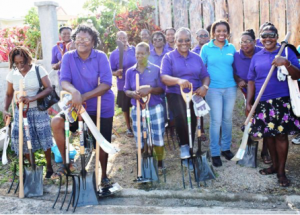
Duration: August 2019 - September 2023
Budget: US$6,252,405
Implementing Agencies: UN Women (lead), ILO, UNDP, FAO in partnership with UNFPA, UNICEF, RCO
In the Caribbean region, middle-income countries are marked by decreasing aid flows despite lagging economic growth, high and unsustainable levels of debt, increasing poverty and inequality, climate change and disaster risks, and public safety challenges. Women and youth are disproportionately affected by these challenges as a result of low-income levels and high barriers to economic participation that further increase their vulnerabilities to economic, social and environmental shocks. MORE -

Duration: July 2019 - April 2023
Budget: US$377,837
Implementing Agencies: Economic Commission for Africa (ECA), UN Office to the African Union (UNOAU), HSU
The development of the African Human Security Index (AHSI) represents the first continent-wide human security index to support progress on the implementation of Agenda 2063 and the Silencing the Guns initiative. Such an index will help clarify how diverse issues ranging from poverty in all its forms, to social exclusion, violence and environmental degradation interact and require people-centered, comprehensive and risk-informed responses that support the continent’s goal towards a more inclusive and shared prosperity, in greater peace and resilience.MORE -

Duration: February 2019 - December 2022
Budget: US$5,308,945
Implementing Agencies: IOM (lead), ESCAP, ILO, OHCHR
The small island states of the Pacific region are extremely vulnerable to the effects of climate change which increases the risk of flooding, storms, and extreme weather events. Rising sea levels also cause coastal erosion and salinity intrusion destroying the livelihoods of those dependent on agriculture and fishing.MORE -

Duration: September 2016 - December 2019
Budget: US$1,904,274
Implementing Agencies: UNISDR(Lead), UNDP
The programme helps to develop the capacities of local governments and institutions to mitigate disaster-related insecurities in 10 urban communities living in vulnerable conditions in Mauritania and Tunisia.MORE -
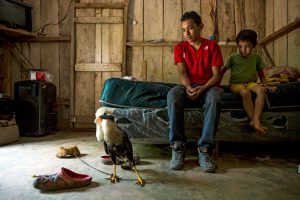
Duration: December 2015 - December 2018
Budget: US$538,026
Implementing Agencies: PAHO/WHO
The programme aims to mainstream the human security approach in the national health plans of Central America countries (Belize, Costa Rica, El Salvador, Guatemala, Honduras, Nicaragua, and Panama) and the Dominican Republic to build the path toward universal access to health and Universal Health Coverage (UHC).MORE -
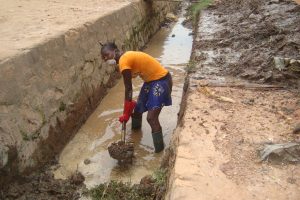
Duration: May 2013 - April 2015
Budget: US$321,000
Implementing Agencies: DESA/UNCRD
With the aim to achieve sustainable peace and development, the programme undertook human security assessments in target African countries (Kenya, Liberia, Rwanda and South Sudan) and conducted seminars and training courses to build the capacity of the participants.MORE -
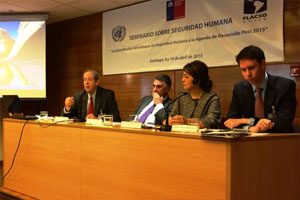
Duration: April 2010 - December 2012
Budget: US$517,121
Implementing Agencies: UNDP
The programme brought together security, human rights and human development policymakers and practitioners to discuss substantive and action-oriented agendas related to the advancement of human security. Taking into account the realities of Latin America and the Caribbean region, the programme validated the added value of the human security approach to the region.MORE -
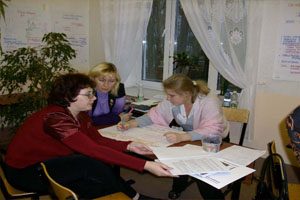
Duration: January 2009 - September 2013
Budget: US$2,610,478
Implementing Agencies: UNDP, IAEA, WHO, UNICEF
The programme built the capacities of local communities to rebuild their economies through community-led decision-making and improvements in infrastructure, and by supporting local radiation awareness and risk reduction initiatives for those living in contaminated zones.MORE -
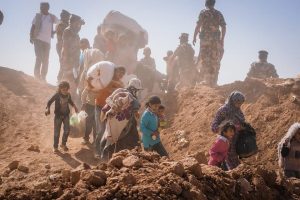
Duration: June 2007 - June 2010
Budget: US$220,350
Implementing Agencies: UNESCO
In close partnership with the League of Arab States, the programme deepened the understanding and acceptance of the human security approach among policymakers, academics and civil society actors in the region. As part of the programme, five academic papers were prepared by prominent Arab experts who discussed the threats, challenges and opportunities for human security in the region.MORE -

Duration: March 2006 - June 2011
Budget: US$20,560,747
Implementing Agencies: UNDP
The programme contributed to the achievement of the MDGs in some of the poorest regions of sub-Saharan Africa. By supporting multi-sectoral interventions in agriculture, business development, education, health care, and nutrition, the programme highlighted the important contribution of the human security approach to the realization of the MDGs.MORE -
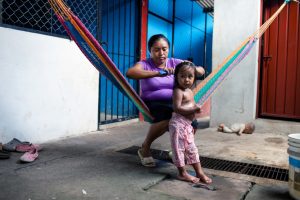
Duration: July 2005 - December 2007
Budget: US$1,541,925
Implementing Agencies: UNIFEM
To prevent sexual exploitation of vulnerable women and at-risk youth in the border communities of El Salvador, Guatemala and Honduras, the programme focused on their economic and social empowerment, bolstered their protection from sexual abuse and violence, and improved their access to quality health care.MORE -
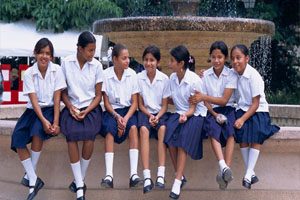
Duration: June 2005 - May 2006
Budget: US$491,370
Implementing Agencies: UNDP
As a follow-up to the regional meeting entitled “Transition and Human Security in Central Asia”, the programme supported the preparation of a report on the importance of regional cooperation for addressing common challenges such as rising poverty, lack of foreign investment, impediments to cross-border trade, and environmental degradation.MORE -
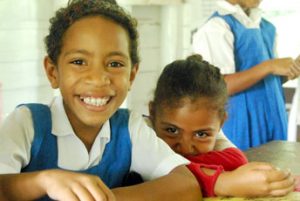
Duration: December 2004 - December 2009
Budget: US$935,768
Implementing Agencies: DESA
The programme aimed to ensure that children in earthquake prone areas have access to disaster resilient schools, and that communities enhance their capacity to cope with the impact of earthquakes by using schools as disaster mitigation and relief centres.MORE -
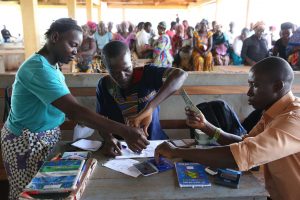
Duration: September 2004 - December 2008
Budget: US$2,670,777
Implementing Agencies: UNDP, UNOPS
Building on past and ongoing multifunctional platform (MFP) initiatives in West Africa, the programme implemented a broad range of activities to improve the capacities of rural communities to operate and manage their energy services in Burkina Faso, Ghana, Guinea and Senegal.MORE -
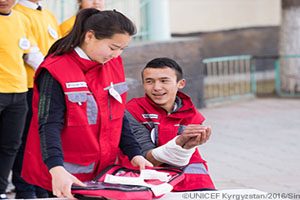
Duration: August 2004 - July 2007
Budget: US$2,160,000
Implementing Agencies: UNICEF
The programme addressed the growing challenges met by parents facing homelessness, unemployment, single parenthood, alcoholism, or drug addiction and their tendency to place their children in State-run institutions. It supported the establishment of family-centred child care and reintegrated at-risk children into full-time family care.MORE -
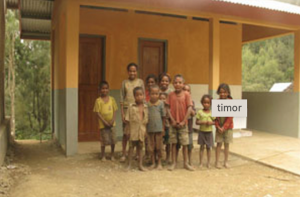
Duration: February 2003 - June 2006
Budget: US$1,030,000
Implementing Agencies: UNDP
The programme addressed the dual vulnerabilities of human trafficking and HIV/AIDS facing women and girls in South Asia. The programme, in addition to providing care and support to those who were at risk of human trafficking and HIV/AIDS, assisted in the establishment of cross-border rehabilitation and support networks by Governments, civil society groups and community members.MORE -
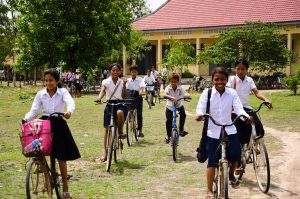
Duration: September 2002 - December 2003
Budget: US$480,430
Implementing Agencies: ESCAP
The programme worked to improve the quality of life in low-income communities by enabling targeted groups to design and implement community-based development strategies. A series of workshops were conducted in each location to train community members, Government officials, local stakeholders, and staff from the supporting organisations.MORE -
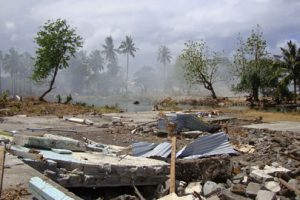
Duration: April 2001 - December 2005
Budget: US$720,711
Implementing Agencies: UNHCR
With the objective to develop the skills and capacities of those responding to and preparing for emergencies in complex environments, the programme established a regional emergency training centre, the eCentre. This platform offered training activities, provided resources, and maintained a network of trained personnel who could share their knowledge and combine their expertise.MORE -
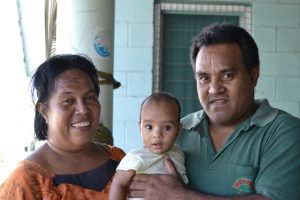
Duration: April 2001 - March 2005
Budget: US$1,587,833
Implementing Agencies: UNFPA
Targeting five priority countries in the South Pacific region (Kiribati, Marshall Islands, Solomon Islands, Tuvalu and Vanuatu), the programme stemmed the growing prevalence of sexually transmitted infections (STIs), HIV/AIDS, and unwanted pregnancies by increasing awareness and access to reproductive health care.MORE -

Duration: -
Budget: US$437,579
Implementing Agencies: International Peace Institute (IPI) (lead), UN Human Security Unit (HSU)
MORE
